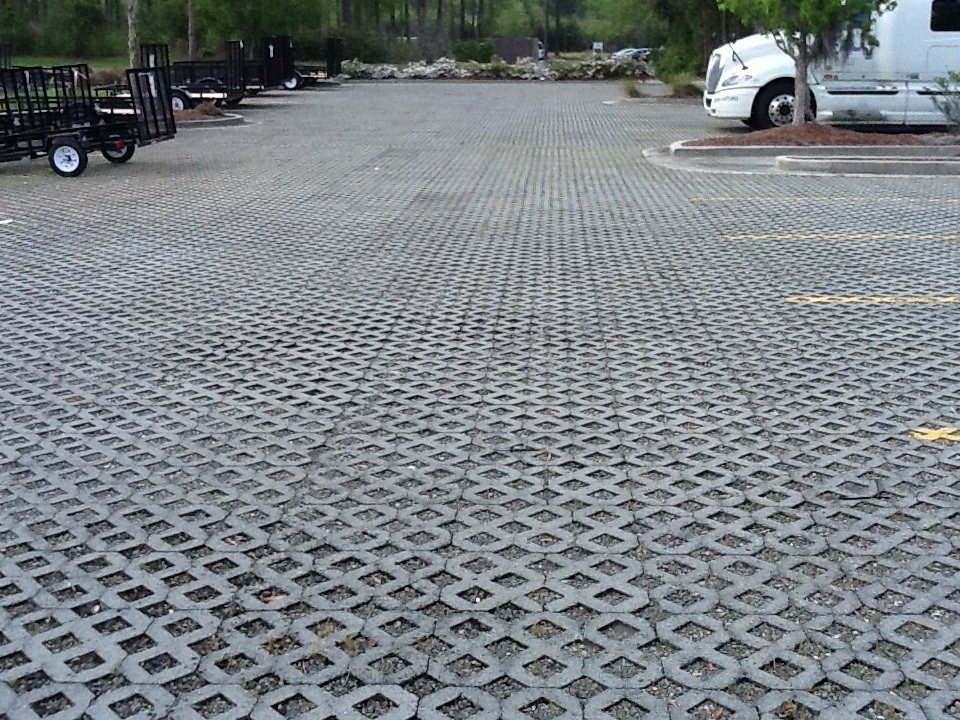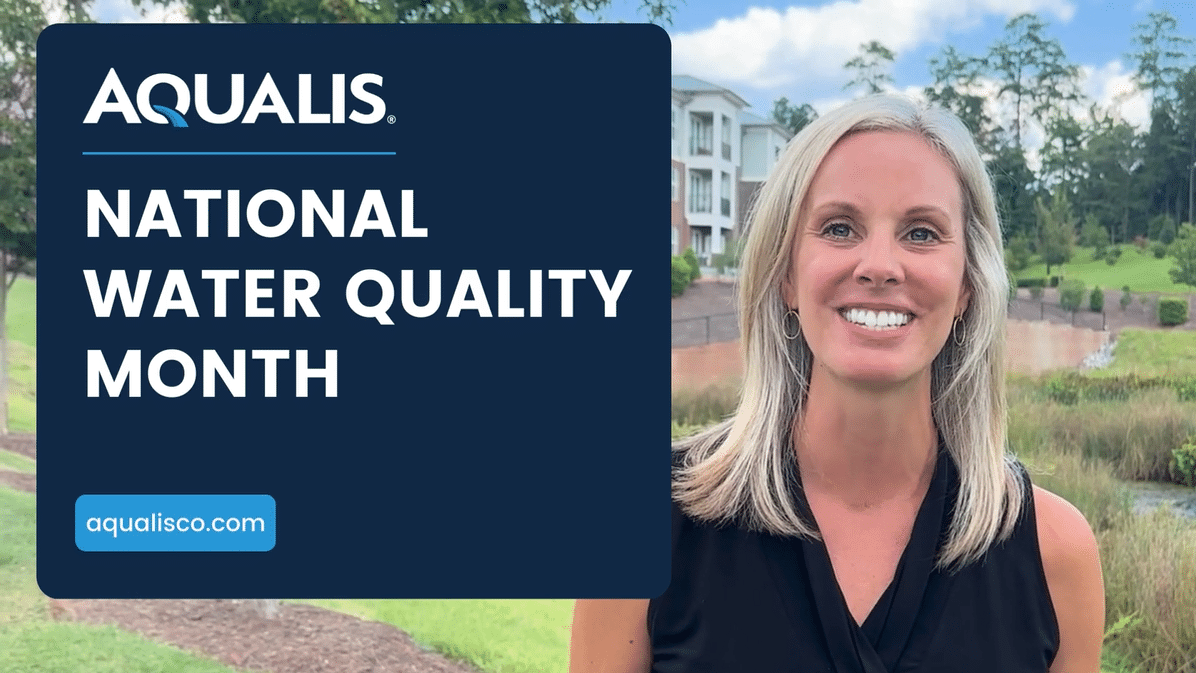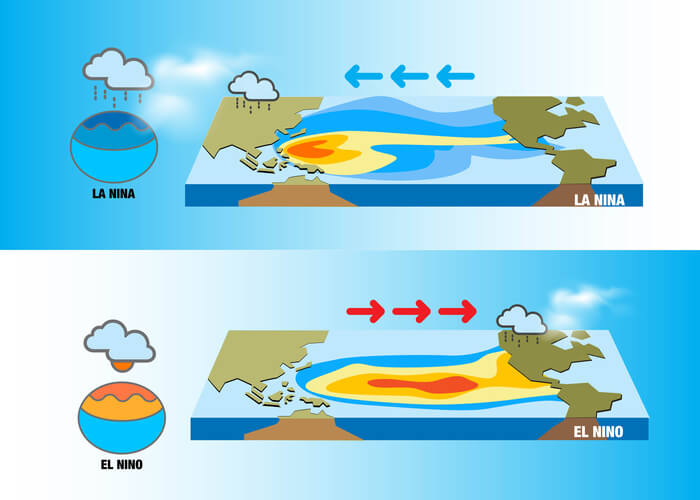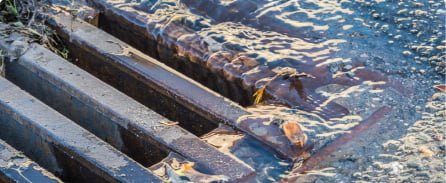Permeable Pavement
Also called porous or pervious pavement, this green stormwater infrastructure operates as a constructed surface for sidewalks, driveways, or entire roadways while still allowing runoff to filter into the ground. Usually placed in areas with limited landscape availability, this management technique is intended to allow water to permeate into the soil beneath it instead of moving directly to other constructed stormwater assets. Permeable pavement reduces the need for additional land use stormwater management infrastructure.
Options include:
- Pervious concrete
- Porous asphalt
- Permeable interlocking concrete pavement
Porous asphalt and pervious concrete are alternatives to traditional asphalt and are created to be less dense which allows water through the surface. Permeable interlocking concrete are installed with small gaps in the joints between pavers, allowing runoff through the surface layer. Permeable pavement reduces volume of stormwater runoff, recharges groundwater, increases water quality.
Eligible sites for permeable pavement:
- Do not need to sacrifice area, as permeable pavement is a traditional pavement alternative,
- Have a flat or low surface slope,
- Have permeable soils to allow infiltration,
- Require rainfall absorption. Permeable pavement is not recommended for surrounding impermeable surface runoff collection, as runoff increases chances of clogging,
- Need ground water recharge.
Permeable Pavement Management

IMPORTANCE AND BENEFITS OF PERMEABLE PAVEMENT MANAGEMENT
Permeable pavement is less prone to depressions and cracks from freezing than impervious options like asphalt. It can be used as an alternative regardless of the area covered or the soil content. An underdrain may also be installed with the permeable pavement if the soil has a low permeability point to allow for proper filtration underground.
Used in both commercial and residential stormwater systems, permeable pavement offers stormwater management with an aesthetic appeal. This alternative pavement option is helpful in areas with limited dedicated surface area. It functions best in local, low traffic throughways such as pedestrian paths and driveways. The rough, irregular surface created by the porous nature of the material provides additional traction to bicycles and other vehicles. Dependent on the soil underneath, permeable pavers are not intended for continual heavy loads and may crack under pressure.
Permeable pavement provides water protection, water conservation, and stormwater quality benefits. Some of the benefits of porous pavements include:
- Efficient and effective pollutant and contaminant removal through infiltration
- Reduction of water runoff and stormwater volume control from development site
- Effective local flood control
- Can provide groundwater recharge
- Flexibility in design layout and scale, which allows it to fit in most landscapes and development sites
- Good option for retrofit of existing infrastructure
- Relatively low maintenance
- Adds aesthetic appeal to the sites
AQUALIS PROVIDES STORMWATER PERMEABLE PAVEMENT MANAGEMENT SOLUTIONS
As the green stormwater infrastructure experts, AQUALIS has significant experience in the rehabilitation and long-term maintenance of permeable pavements. Our goal is to design and implement permeable pavement options that effectively filter pollutants out, slow stormwater runoff and improve water quality in a natural, aesthetically pleasing manner.
We can assist with the development and implementation of your pervious pavement management solution. Before we develop a plan for your property, an AQUALIS consultant will perform an initial site assessment to determine your stormwater management needs. Based on the information collected from this visit and our best practices, we will develop a plan that fits your site needs with the highest compliance at the lowest cost.
LET AQUALIS MANAGE YOUR PERMEABLE PAVEMENTS
To ensure optimal pollutant removal and flood control capabilities, a regularly scheduled maintenance plan is necessary. Clogging of permeable pavements can limit infiltration rates.
Maintenance is typically comprised of the following:
- Percolation testing,
- Sediment removal,
- Replacement of joint aggregate
- But all maintenance varies base on manufacturer recommendations
Partner with a professional today to properly maintain these assets and ensure optimal performance. AQUALIS management of permeable surfaces include inspecting pavement drainage rates, pressure washing, sweeping, vacuuming, snow and debris removal, weeding, and material replacement when necessary.


